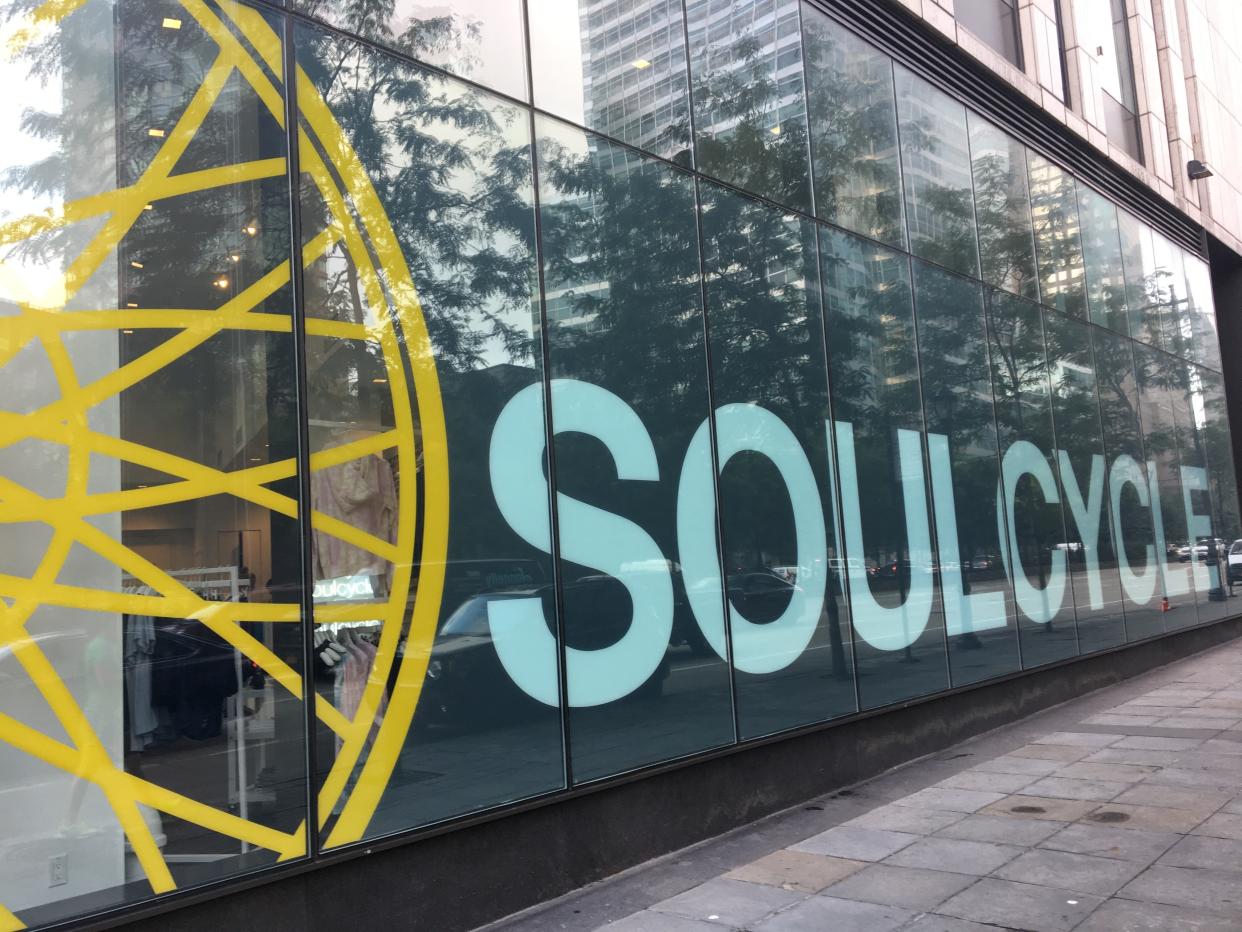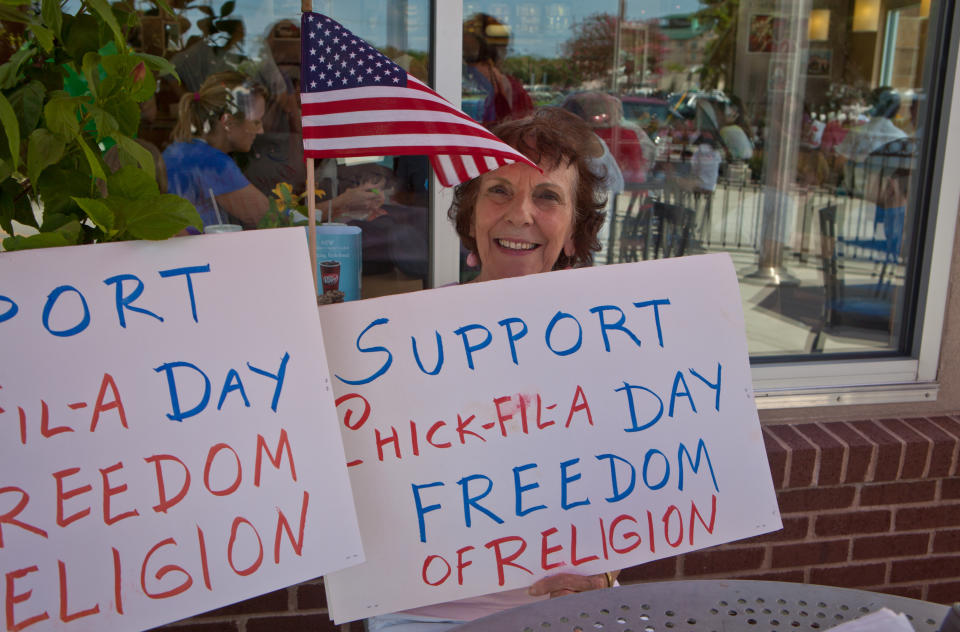Why Equinox, SoulCycle boycotts in response to Trump fundraiser likely won't work, say experts

News of an upcoming Donald Trump fundraiser hosted by billionaire owner of Equinox and SoulCycle, Stephen Ross, has been met with swift calls for a boycott, with celebrities from Wilson Cruz to Chrissy Teigen suggesting people cancel their memberships to the fitness chains.
“There is NO WAY that we as a community can continue to support this business,” noted actor-activist Wilson Cruz in his Change.org petition, focusing on the dichotomy between Equinox’s LGBTQ-inclusive marketing message and this perceived endorsement of Trump administration policies.
Video: Celebs Weigh in on SoulCycle Boycott
George Takei, meanwhile, tweeted, “Know where your money is going,” while Chrissy Teigen posted, “F*** Equinox,” and Bill Eichner noted on Wednesday that he had just called the luxury gym to cancel his membership because “money talks, especially with these monsters.”
But does it? That remains to be seen. But boycott experts, in the meantime, warn that it will likely take much more than a couple days of social-media boycott posts to have any sort of impact.
“In general, boycotts largely don’t work, because most people aren’t compelled to make substantial lifestyle changes for an impact that seems indirect,” Maurice Schweitzer, who focuses on business ethics as a professor of management at the University of Pennsylvania’s Wharton School, tells Yahoo Lifestyle.
For it to truly have an impact that changes Ross’s actions, he says, “It takes a sustained, large-scale, coordinated effort. I can assure you that the senior managers at Equinox are focused on this right now, and in damage control, and that they’re going to have a terrible week. But it’s not going to do longterm damage to the company.”
Schweitzer points to other recent examples of boycotts that fizzled out — like that of Chick-fil-A, after CEO Dan Cathy spoke out against same-sex marriage in 2012 and news broke that the company had donated millions to conservative organizations; it’s since been widely embraced by the Right. Or that of LL Bean, after one granddaughter of the founder donated thousands to an organization that supported Trump, prompting Grab Your Wallet to add the outfitter to its list of companies to drop. Or the boycotts of Exxon, after the Valdez tanker oil spill in 1989, and of BP, after the Gulf oil leak in 2010.

“We had massive environmental damage, and thousands of people signed onto the boycotts,” Schweitzer says. “You’d think gas would be the easiest thing to switch. But still, people went back.” And in this case, with Equinox, he says about most of its members, “You feel conflicted — you do now. But in a month, or even more quickly, I assure you, this will pass.”
P. Sergius Koku, professor of business marketing and a longtime boycott analyzer at Florida Atlantic University’s College of Business, concurs.
“It sounds good, but to be honest with you, I don’t think it will amount to much,” he tells Yahoo Lifestyle. “Because for a boycotts to be successful, which means a cost to the person [boycotting], you have to give up what you have been patronizing for a substitute. But if you chose it, it means that for you, it was your best choice. Now you are going to have to settle for second best, so the question is, ‘Is it worth the effort? Is what I’m sacrificing worth the effort?’”
It was apparently not worth the effort, for example, for fans of a group of luxury hotels, says Koku, including the Beverly Hills Hotel, which George Clooney implored people to ban because they are owned by the Sultan of Brunei, where being gay is deserving of the death penalty. “They’ve not suffered a bit,” Koku says of the hotels.
“If the idea is to inflict economic damage, one social media posting or email or op-ed is not going to be enough, because what you are really planning to do is change people’s habits,” he adds.

Koku also warns of boycott backlashes, noting, “For every boycott, there is a ‘buycott,’ compelling those on the other side of those protesting to come out in strong support of the business.”
All of this is not to say that boycotts never can work, say both Koku and Schweitzer, who point out as successes both the United Farm Workers Grape Strike led by Cesar Chavez in California in 1966, and the Montgomery Bus Boycott in Alabama beginning in 1955 with Rosa Parks and ending with an integrated bus system.
“Boycotts do work if they are organized well… but [only if it is] a sustained effort, and not just called for one time,” Koku says, adding that the internet has changed the effectiveness of boycotts, because it makes them something “trending because it’s fashionable.”
Finally, warn both experts, if boycotts do see some success, they could wind up hurting many of the workers, who may not share the values of the person being protested, in this case Ross.
“You might have a relationship with the people who work there, and it will effect them,” notes Schweitzer. “Employees want to feel that the company’s values line up with their own, and that will be a challenge now for [fitness brand’s] leaders to assure their workers, who are probably pretty diverse with beliefs that don’t line up with Trump’s values, that we’re distancing ourselves from one investor’s beliefs.”
If you disagree with Trump’s policies, he suggests, “I don’t think it would be very hard to think of other ways to get involved, donate money, and try to affect change in a more effective way than canceling your Equinox gym membership.”
Read more from Yahoo Entertainment:
Ads pulled for gun-heavy film 'The Hunt' following mass shootings
Equinox, SoulCycle face backlash amid owner’s Trump fundraiser
Want daily pop culture news delivered to your inbox? Sign up here for Yahoo Entertainment & Lifestyle’s newsletter.

